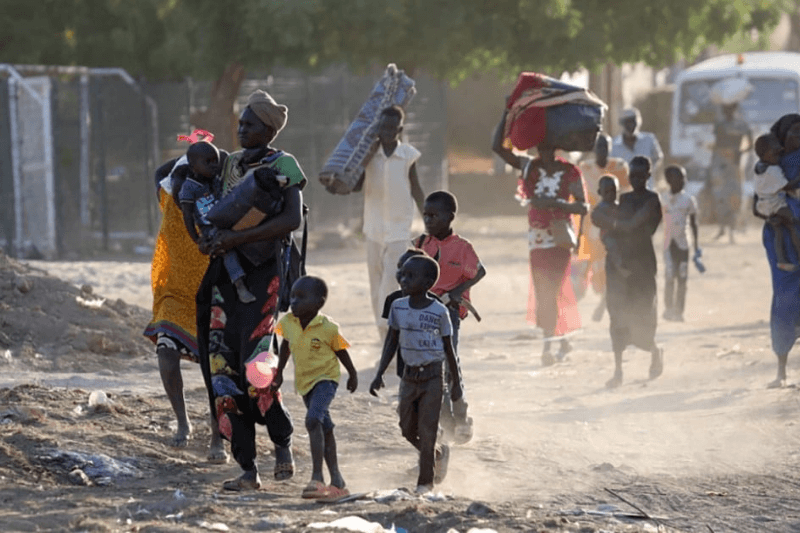Over a year after the fighting in Sudan between the Sudanese army and RSF paramilitaries, civilians are caught in a never-ending cycle of displacement, lack of assistance, and an impending hunger crisis. UN Secretary-General’s Spokesman Stéphane Dujarric called on them to stop the growing violence-especially in the North Darfur capital of El Fasher.
Following reports of widespread fighting in El Fasher last week, with implications on health facilities and displacement camps amid dire situations for the thousands thus far affected by this ongoing conflict, the Resident and Humanitarian Coordinator for Sudan, Clementine Nkweta-Salami, is urgently calling on all parties to the conflict to cease targeting the city and spare civilians.
The UN estimates that thousands have been killed and about eight million people displaced-mostly into safer areas within Sudan and thousands into neighboring countries. A shortage of aid worsens the living conditions, therefore pushing Sudan to the brink of famine as its food security situation has become the “biggest concern” for humanitarian agencies operating in the region.
Last month, world hunger crisis authorities warned that the current acute situation of food insecurity in the nation demands immediate action to prevent massive deaths, setting up a catastrophic hunger crisis. This has called for increased pressure on the need for an immediate humanitarian intervention to provide food and other basic necessities among the populations.
Justin Brady, head of the United Nations Office for the Coordination of Humanitarian Affairs, also made an urgent appeal for funds to support the UN response plan, which has only 5% financing this year. Brady also called on the warring parties to let humanitarian access reach the most-affected regions, such as Khartoum, Darfur, and the Kordofan region, to help mitigate the disaster before things get out of hand.
Keep Reading
The events in Sudan put in the light that this is a time when international support and cooperation go hand in hand in solving the humanitarian crisis, facilitating access to the delivery of aid to those in most need. Failure to timely act in coordination promises widespread famine and loss of life.

